Pop Cultures

Description:
Pop culture is a driving force in art, aesthetics, and culture at large. It is a sphere where politics, identities, and social questions are negotiated. Rather than denoting only the culture for and of the masses, it is characterized by the dialectical interplay between mainstream and subculture, their respective milieus and markets. Today, pop is no longer only a DIY culture of amateurs, but has become academic, oscillating between educational institutions, mainstream entertainment, counterculture(s), the fine arts, and various mixed forms. Hence, by being thoroughly globalised and hybrid, pop exists only in plural. Against this backdrop, this theme group explores pop cultures in theory and practice, in teaching and research, in Europe and in Asia. Due to their variability, plasticity, and connectivity, pop cultures are particularly suited for bringing various disciplines and degree programs together.
Two working groups are establishing continually running education formats for this theme. In 2019, they initiated both a summer school and a research network with a view to creating long-term collaborations:
The working group Pop Cultures Research is establishing a permanent research network. Its aim is to discuss the globalisation of pop cultures from a transcultural perspective, considering commonalities as well as spatial and historical idiosyncrasies. Unique about this network is that it’s made up of mainly art universities and focused on artistic research. A peer-reviewed online journal is planned.
The working group Pop Cultures Summer School has developed a cross-departmental and cross-university summer programme focusing on pop culture(s) in Europe and Asia. This programme is of interest for students seeking to deepen their knowledge of pop in global contexts. The programme fosters understanding of the site- and time-specific coding of globally circulating mainstream and underground forms of culture.
Programmes
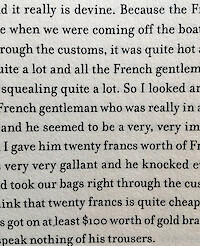
Pop in the Roaring 1920's. Zelda Fitzgerald, Irmgard Keun, Klaus and Erika Mann
Video Essay by Maren Lickhardt
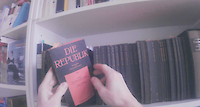
Writing the Self of Uwe Nettelbeck
Video Essay by Philipp Goll
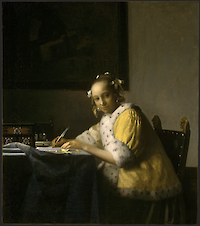
Writing the Self
The sixth section of the online lecture series "Self-Imaging: Identity, Disruption, Transformation" is curated by Joseph Imorde and Jörg Scheller.
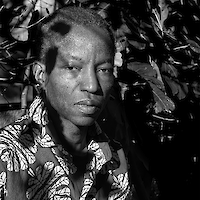
Self-portrait by Other (Autoportrait par autrui)
Essay by Mohomodou Houssouba
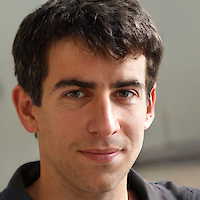
How to Disappear Completely – A Practical Guide
Video Essay by David Ritter

Interview with Ayishat Akanbi
Interview with Ayishat Akanbi by Raphael Smarzoch
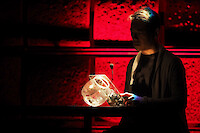
Hearing Our Bodies: Towards an Uncorseting, Anthropology as Music Practice
Video Presentation and Q & A with Ken Ueno & Takuro Mizuta Lippit
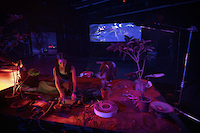
Cosmopolitics in Sound
Video Presentation by Sheryl Cheung
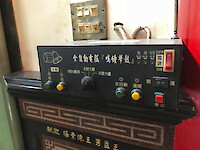
Hearing the Self
The fifth section of the online lecture series "Self-Imaging: Identity, Disruption, Transformation" is curated by Masahiro Yasuda and Takuro Mizuta Lippit.
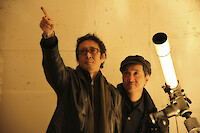
Voice and Machine
Video presentation by "The Formant Brothers" (Masahiro Miwa and Nobuyasu Sakonda)
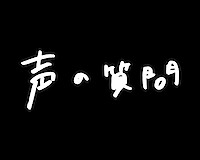
19 Vocal Questions
Online Workshop proposed by Wataru Asada
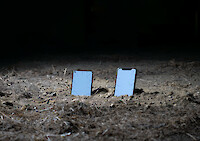
Buried
Q&A with UCNV

Selfie-Biographies: On Reaction Videos
Q&A with Annekathrin Kohout
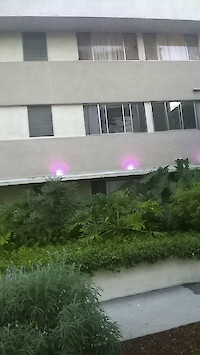
Selflessies. A Case for Negative Narcissism
Q&A with Jörg Scheller

It’s Only Stuff
Q&A with Rada Leu
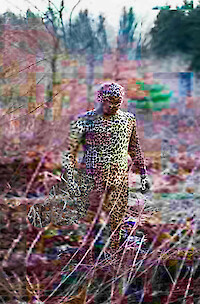
Picturing the Self
The fourth section of the online lecture series "Self-Imaging: Identity, Disruption, Transformation" is curated by Jörg Scheller.
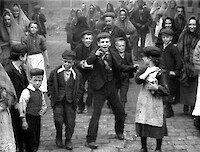
Sagar Mitchell & James Kenyon: Edwardian cinema as social media
Q&A with Richard Reynolds

At Home – The Visual Culture of Privacy
Q&A with Joseph Imorde
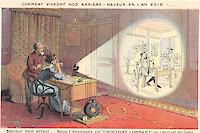
From Purikura to SNS Selfies. Digital Photography and Japanese Popular Culture
Q&A with Morihiro Satow

On Music Streaming: The Consumer as a Spectre of the Romantic Artist Self
Q&A with Tobi Müller

Resemblage. How Virtual Reality is Progressively Deconstructing the Self in the Art of a Fabricated Instagram Persona, David Nobody.
Q&A with David Henry Brown Jr.
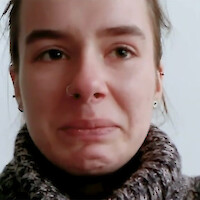
Blocking the Void and Filling the Bridges – On the Staging of Conflict and Activist Selves in Contemporary Protest Cultures
Q&A with Jorinde Schulz
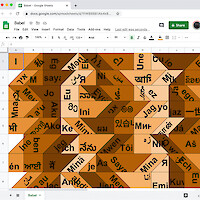
The Shared Presentation “Babel”
Q&A with Yae Akaiwa & Kensuke Sembo
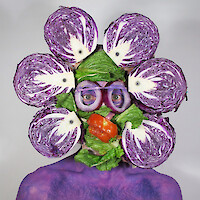
Staging the Self
The third section of the online lecture series "Self-Imaging: Identity, Disruption, Transformation" is curated by Daniel Späti.
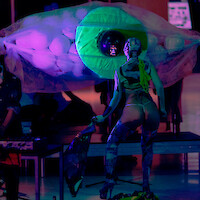
NO I SELF – Betty Apple's Transcoding Game of Ideology
Performances by and Q&A with Betty Apple
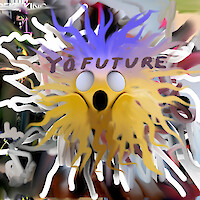
Where are the Stages?
Q&A with Björn Beneditz
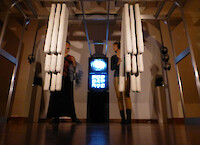
Neuromedia and the Self: Online talk and discussion
Online talk and discussion with Professor Dr Jill Scott
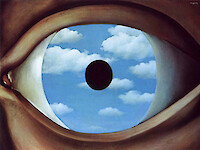
The Self in the Mind’s Eye: An illustrated talk with Q&A
Illustrated talk with Q&A with Professor Manos Tsakiris
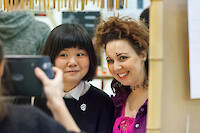
Creative Identities across Art and Science
The second section of the online lecture series "Self-Imaging: Identity, Disruption, Transformation" is curated by Richard Reynolds.

Curiosity: Music and Immersive scientific exploration
Interview with Professor Kelly Snook

Self-reflection in manga by "foreign" artists
Q&A with Ito Yu and Yoo Sookyung

How to design post-binary gender images? Impulses for creating an inclusive world
Q&A with Larissa Holaschke
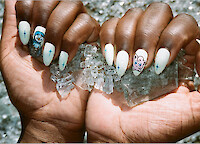
Statement Nails. Female fingertips as a tool of self-empowerment
Q&A with Judith Mair

Chips, Couch and Crisis.The design of the eating protagonist
Q&A with Laura Haensler

Can the hoodie ever be truly unisex? New narratives for an inconspicuous streetwear item.
Q&A with Chinouk Filique
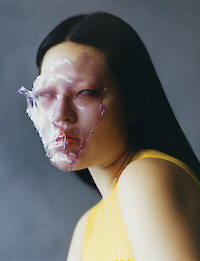
Beauty in techno-expressive times — extended (posthuman) beauty and bodies.
Q&A with Claudia Rafael
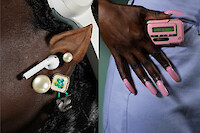
Designing the Self
The first section of the online lecture series "Self-Imaging: Identity, Disruption, Transformation" is curated by Judith Mair.
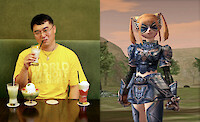
Visual identities. The digital looking-glass self.
Q&A with Francis Müller
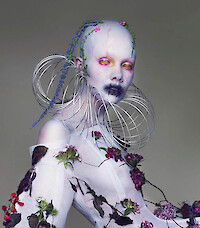
Bizarre Bodies. Digital Body Identities.
Q&A with Irena Srdanovic
Theme Group
Dr Jamie BRASSETT
Reader, Philosophy, Design and Innovation, Research | Senior Research Fellow, Ontologies of Social Design, Social Design Institute, Central Saint Martins College (UAL) | Visiting Professor, Integrated Design, Department of Design, Dessau, Anhalt University of Applied Sciences
Claudio BUCHER
Lecturer, MA Art Education, Cultural Publishing, Department of Cultural Analysis (ZHdK)
Luca BURKHALTER
Lecturer, Department of Music (ZHdK)
Dr Yiu Fai CHOW
Associate Professor, Gender and sexuality, Creative Practices and Cultural Studies, Department of Humanities and Creative Writing, Faculty of Arts (HKBU)
Tom GERBER
Lecturer, BA Film, Department of Performing Arts and Film (ZHdK)
Prof. Dr Florian HEESCH
Professor, Popular Music and Gender Studies, Department of Art and Music, Faculty II (Education, Architecture, Arts) | Vice Dean, International Affairs, Transfer and Young Academics | Research Unit "Popular Cultures", University of Siegen
Dr Annekathrin KOHOUT
Author, Scientific Associate, Popular Culture, Social Media Culture, Faculty of Arts and Humanities, University of Siegen
Mitsuhiro KOKITA
Lecturer, Faculty of Popular Culture (SEIKA)
Judith MAIR
Lecturer, MA Design/Trends, Department of Design (ZHdK)
Dr Takuro MIZUTA LIPPIT
Co-Director, Asian Music Network, Tokyo
Dr François MOUILLOT
Research Assistant Professor, Media studies, Popular culture, Improvisation studies, Creative industries, Identity politics, Department of Humanities and Creative Writing, Faculty of Arts | Research Assistant Professor, Department of Music, Faculty of Arts (HKBU)
Kingsley NG
Assistant Professor, Media Art, Experience Design, Social Innovation, Sustainable Design | Coordinator, Crafts and Design Division, Academy of Visual Arts (HKBU)
Dr Yau-Nang William NG
Associate Professor, Chinese Philosophy and Religion, Comparative Philosophy, Buddhism, Ethics, Department of Religion and Philosophy, Faculty of Arts (HKBU)
Jack PISTERS
Head of Pop Department (AHK)
Richard REYNOLDS
Course Leader, MA Applied Imagination in the Creative Industries, Central Saint Martins College (UAL)
Prof. Dr Joerg SCHELLER
Professor, BA Fine Arts, MA Fine Arts, Department Fine Arts (ZHdK) (TG coordinator)
Daniel SPAETI
Chair, Shared Campus Project Team (ZHdK)
Prof. Dr Daniel STEIN
Dean, US American (Graphic) Literature and (Popular) Culture, English Department, Faculty I (Faculty of Arts and Humanities), Professor, University of Siegen
Rachel THORN
Associate Professor, Faculty of Manga (SEIKA)
Prof. Dr Masahiro YASUDA
Dean, Faculty of Popular Culture | Professor (SEIKA) (TG coordinator)
































